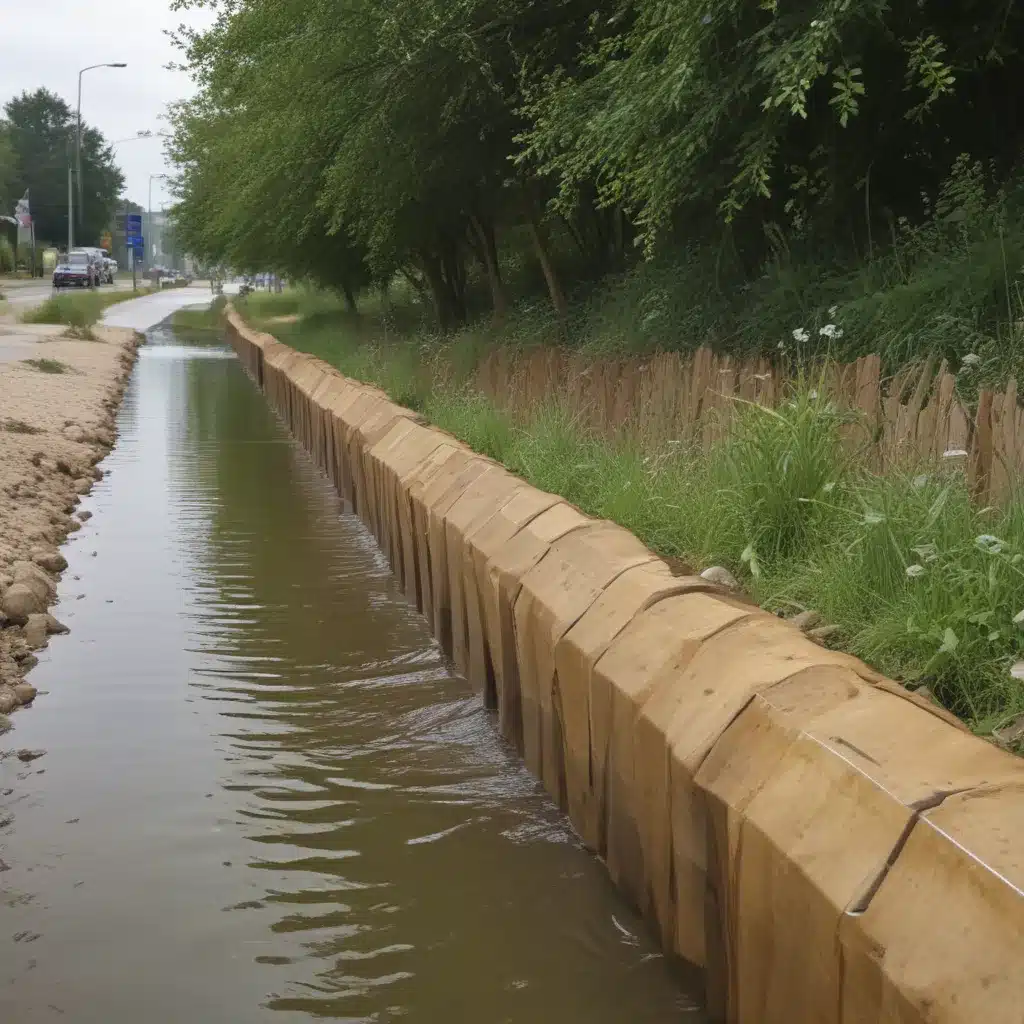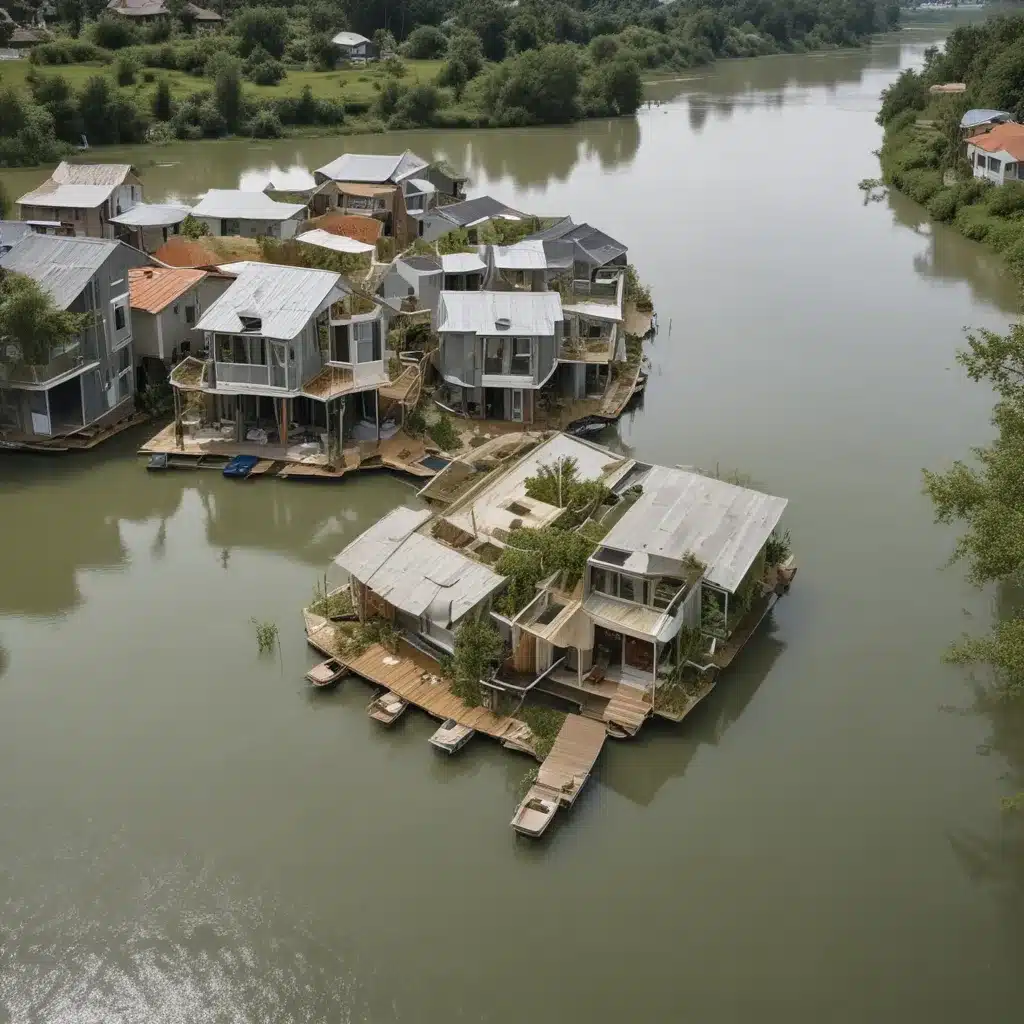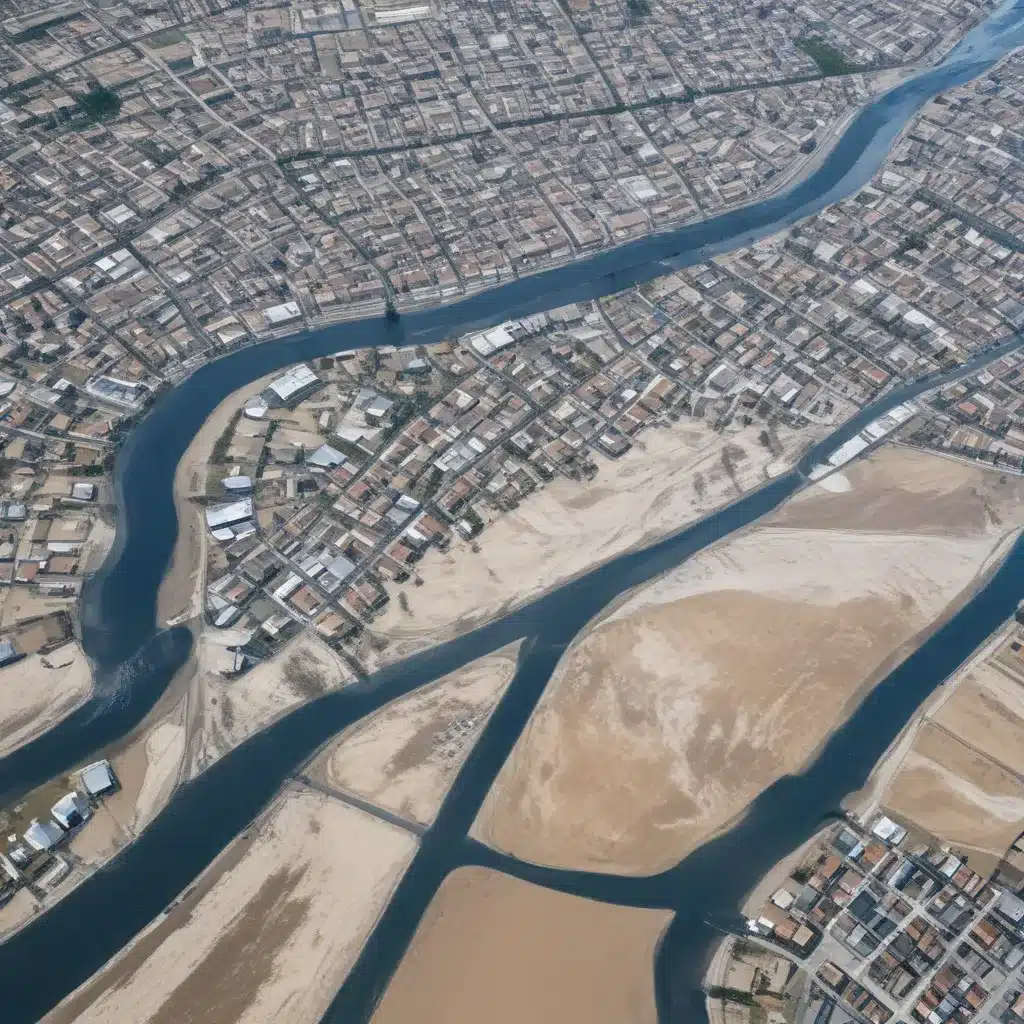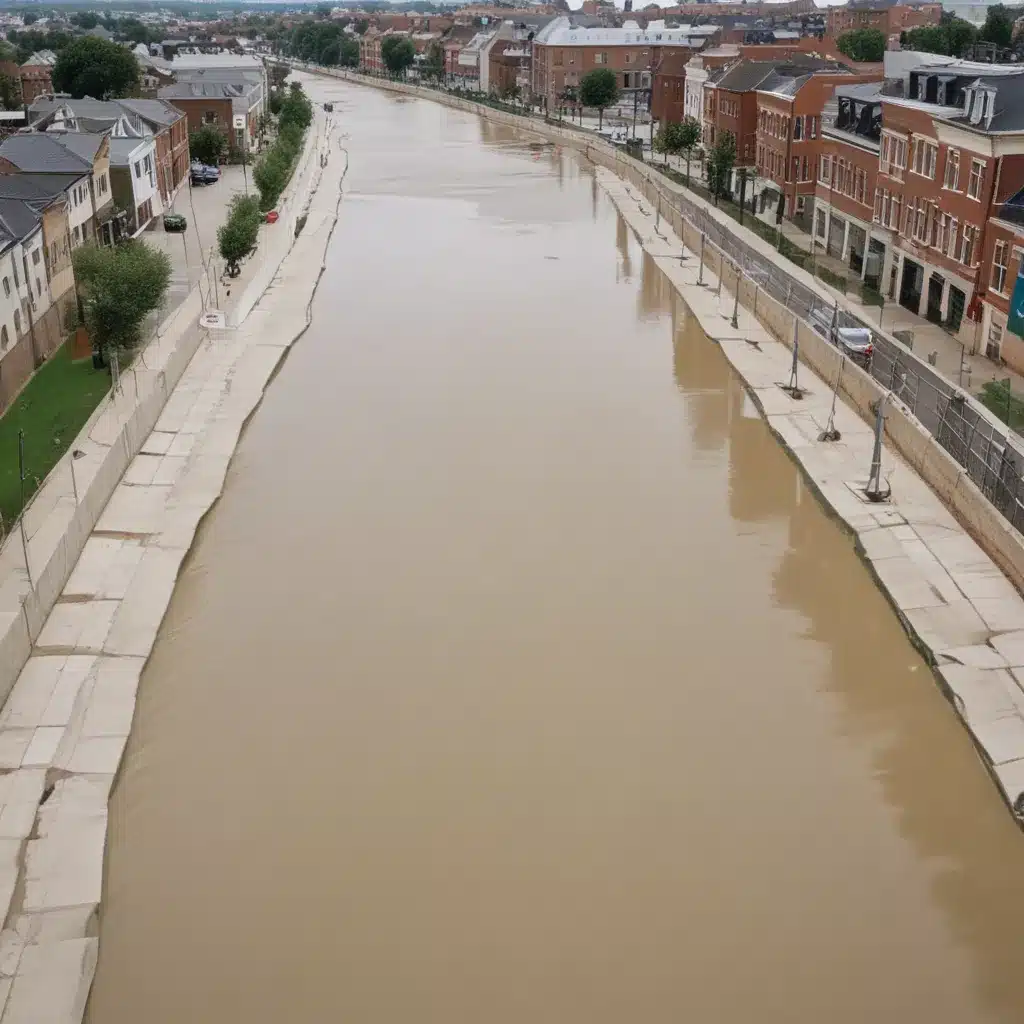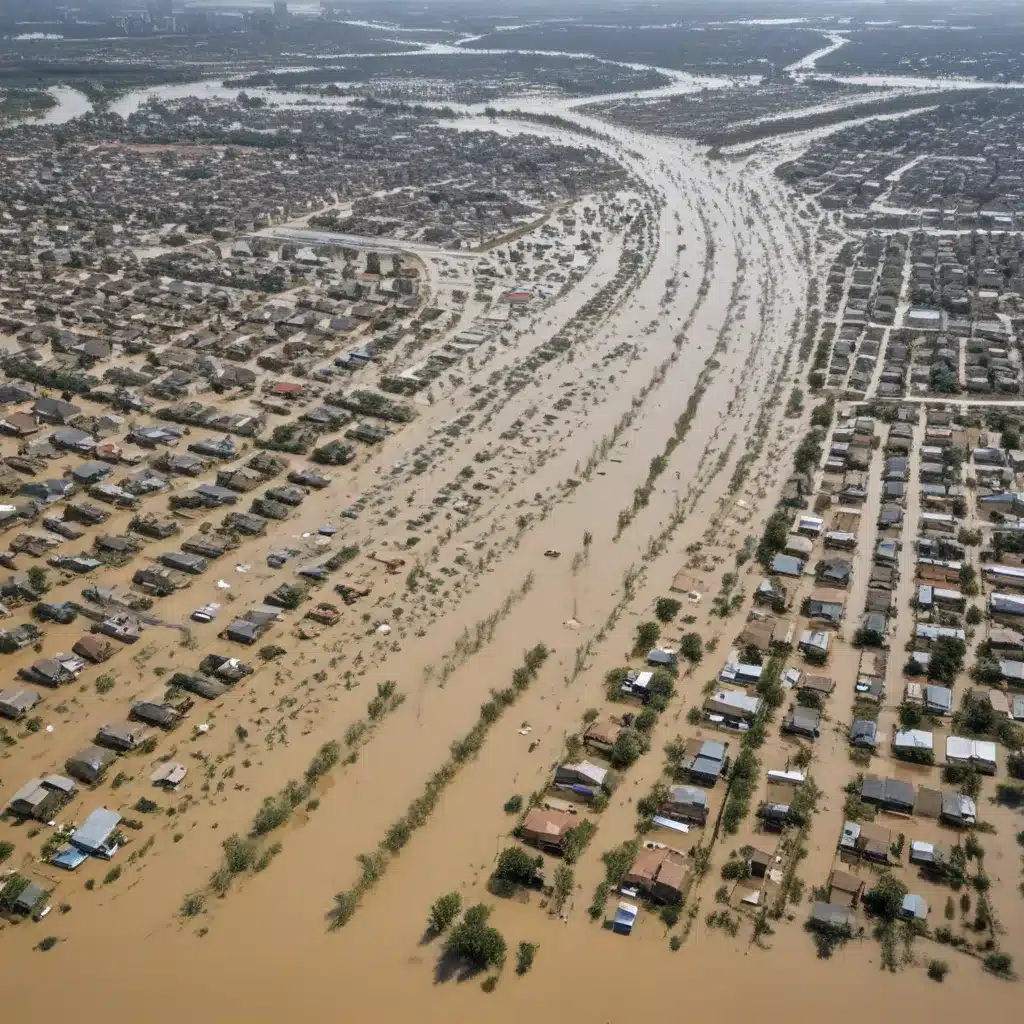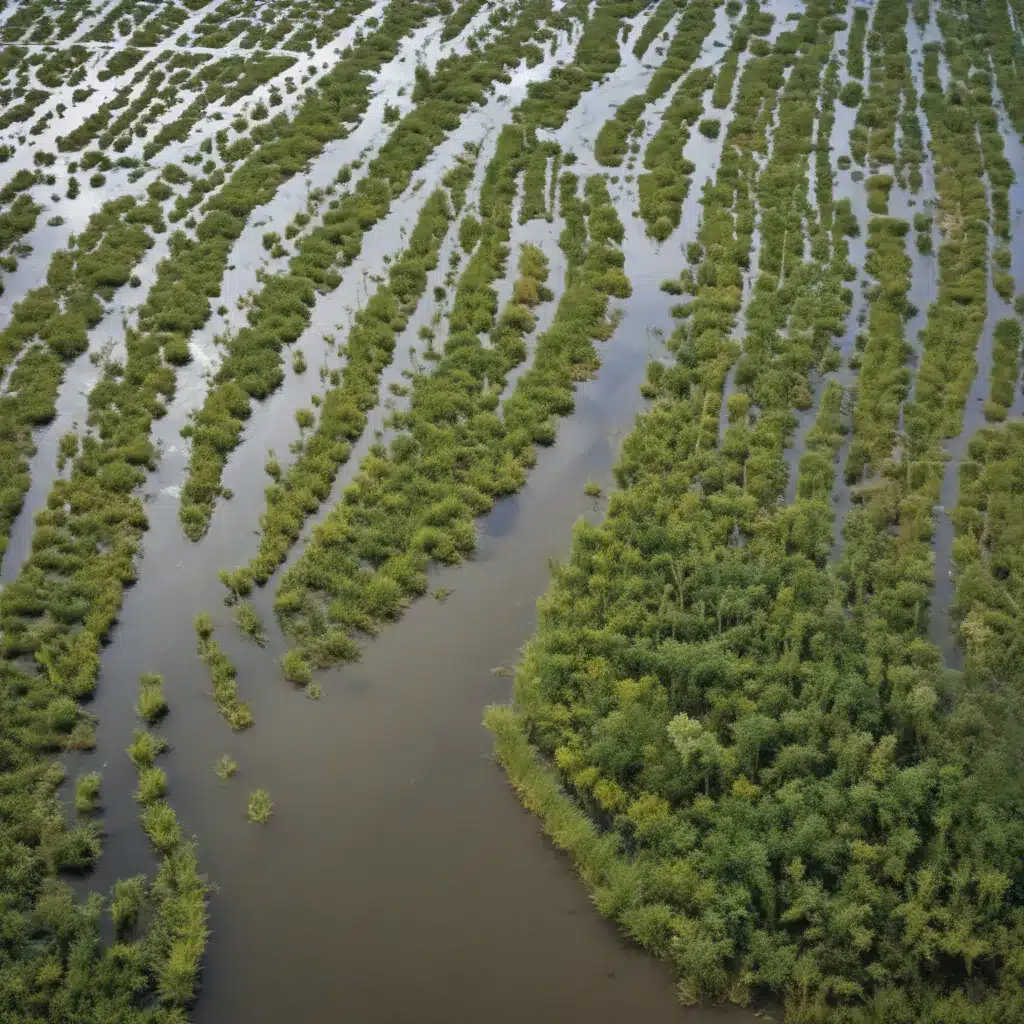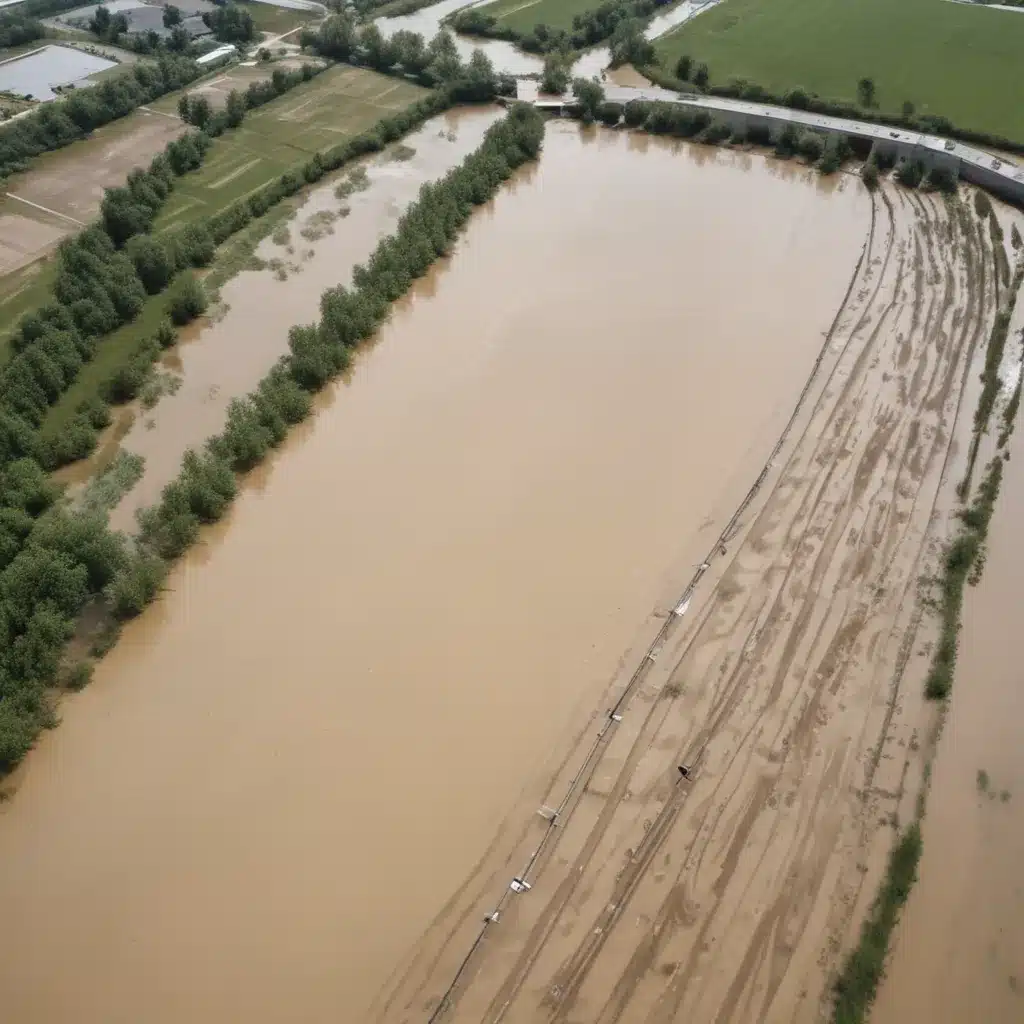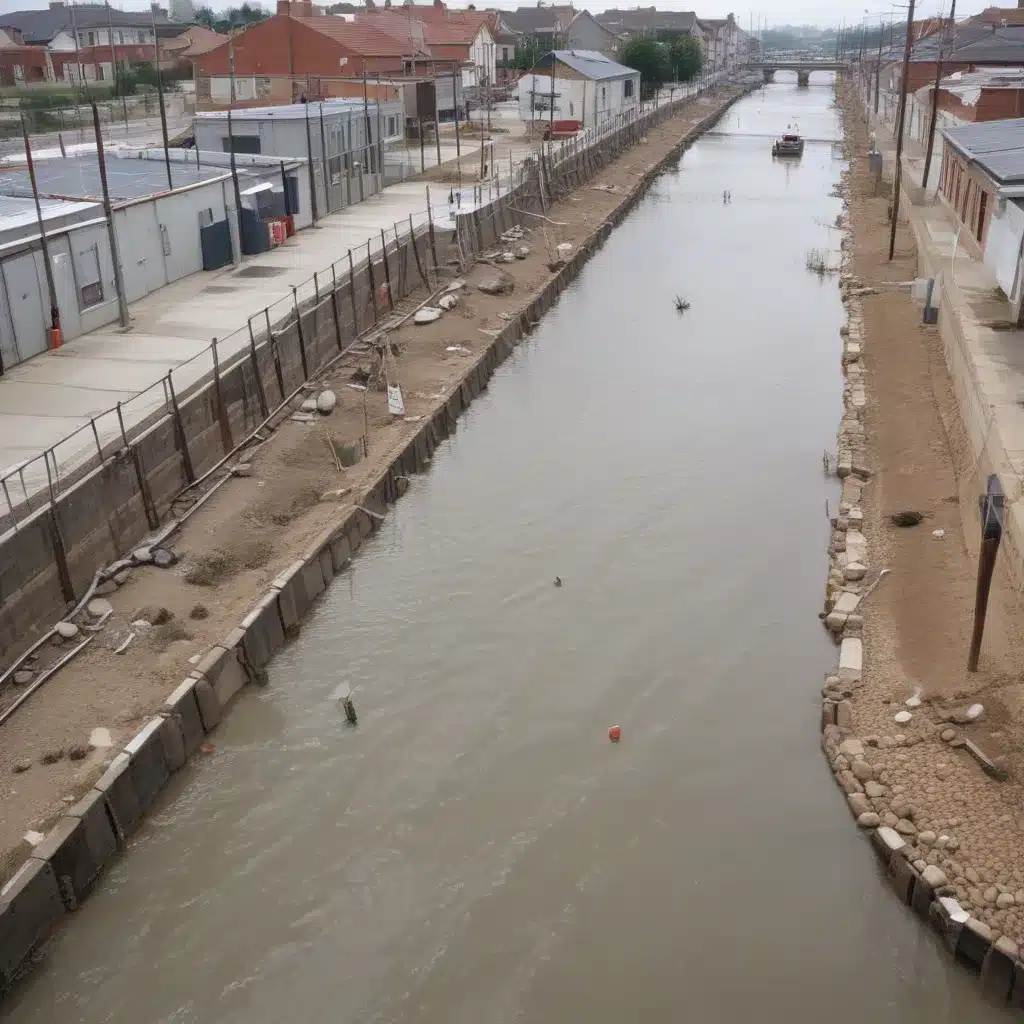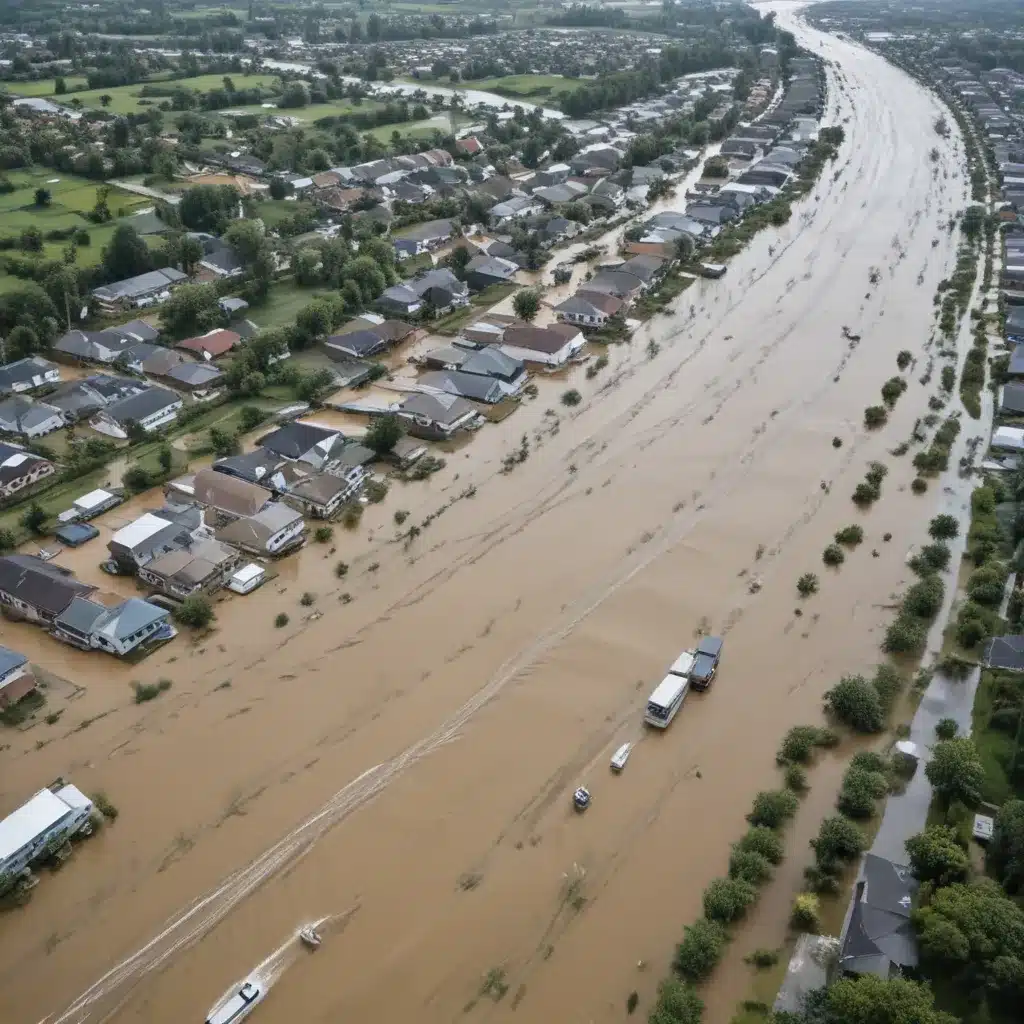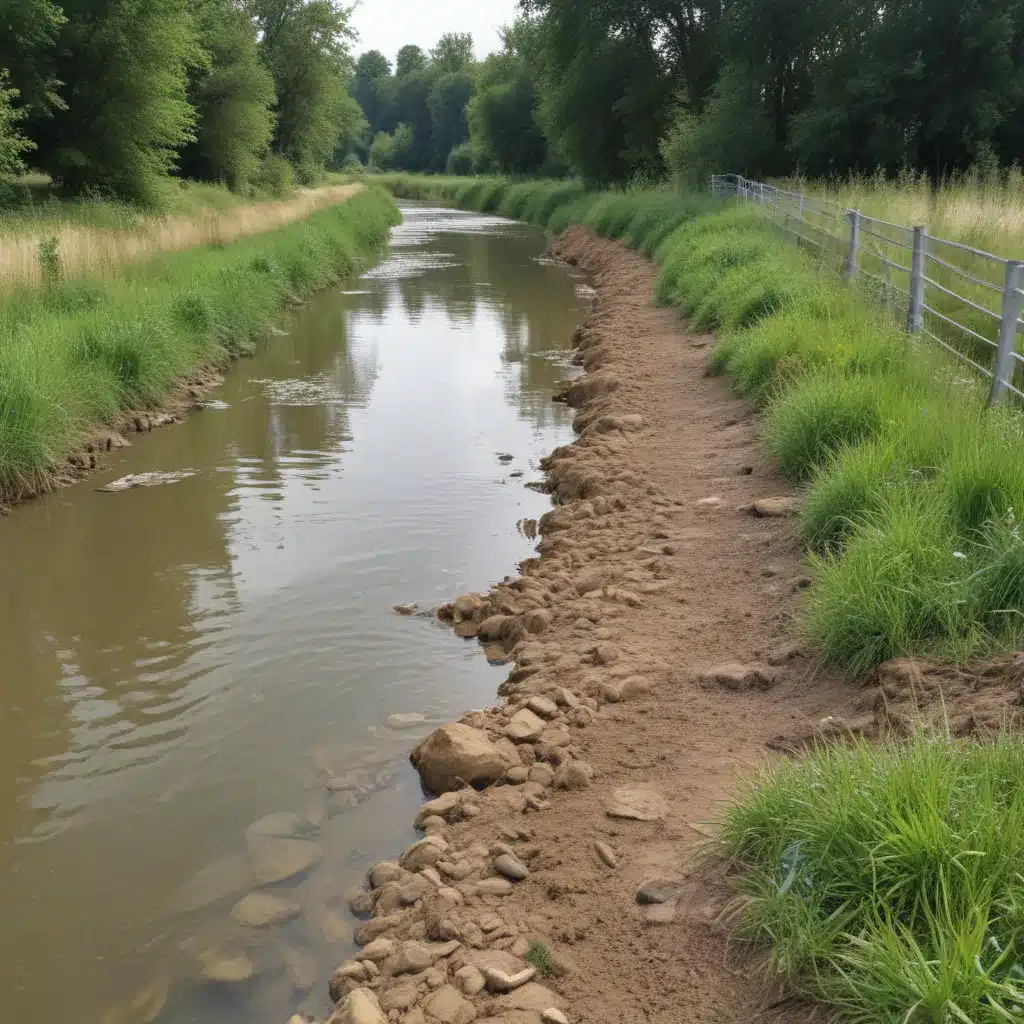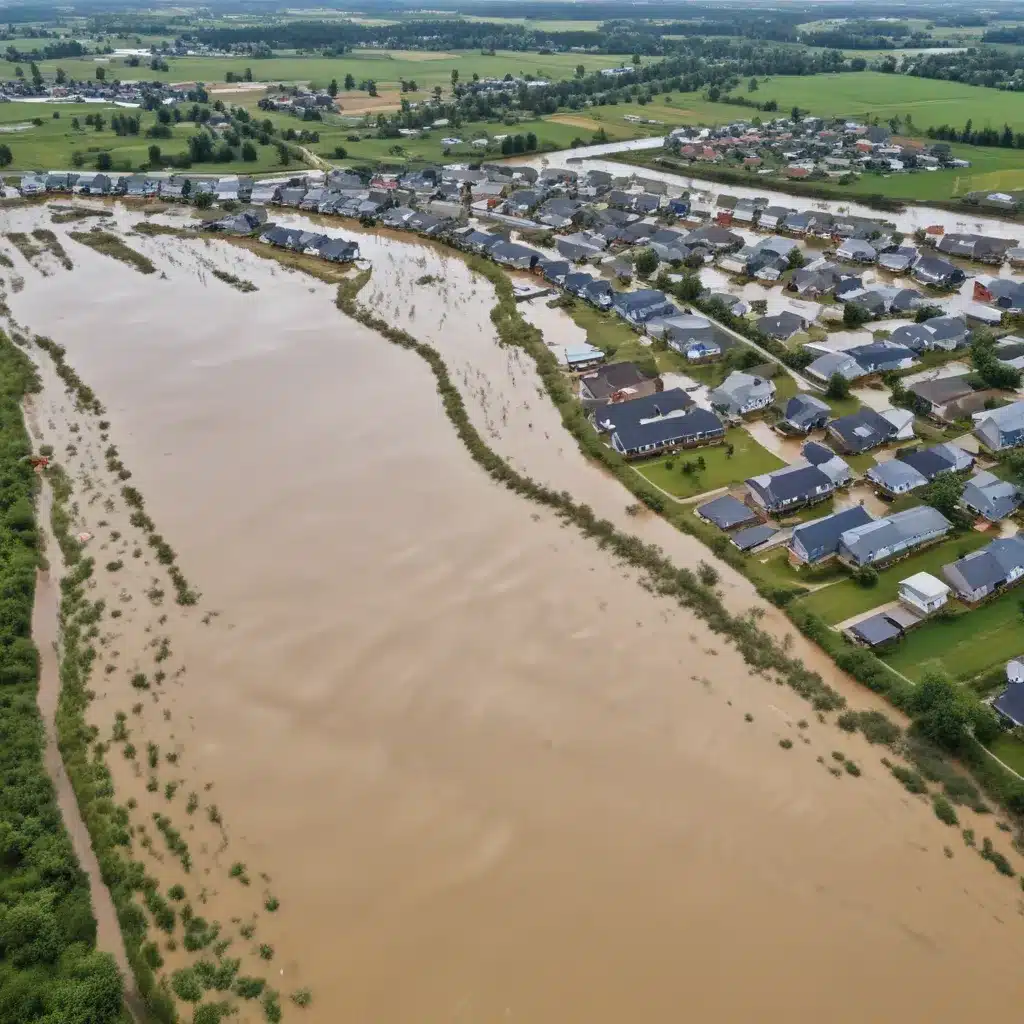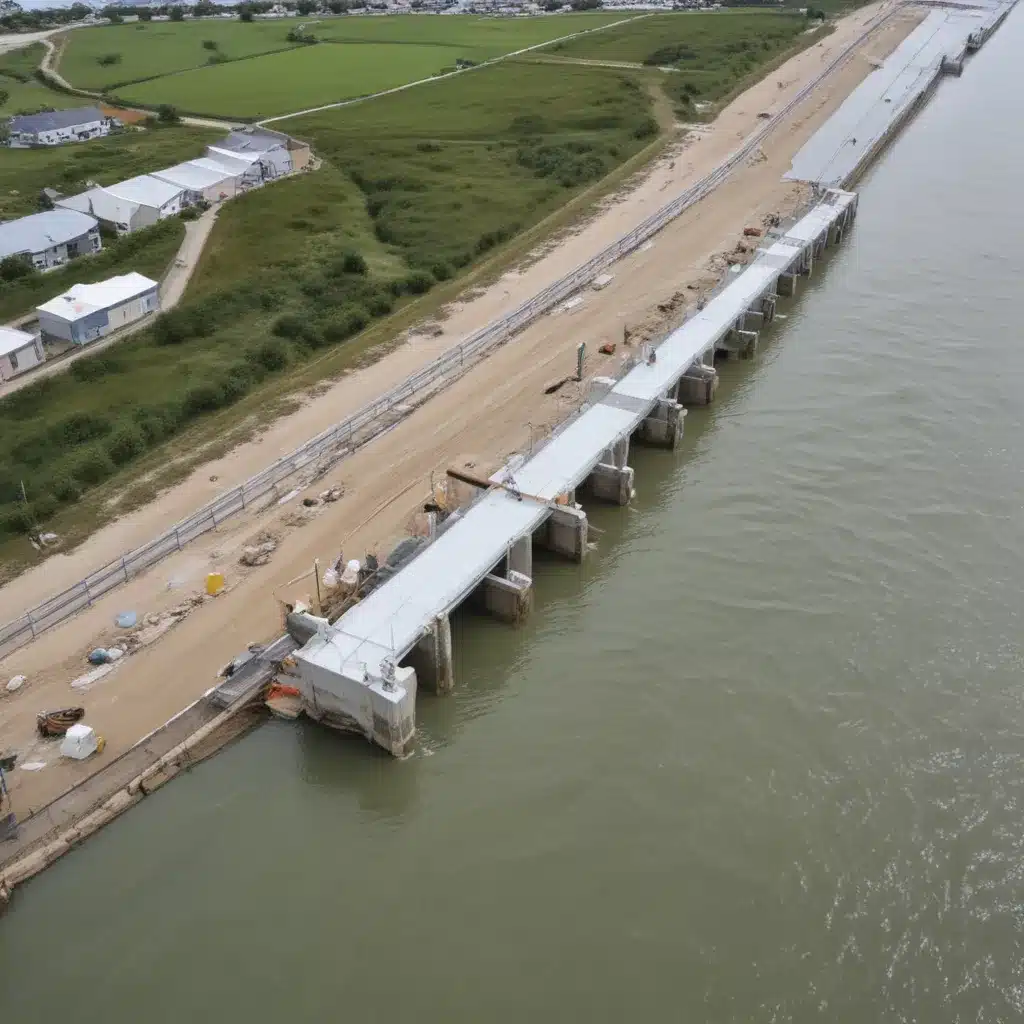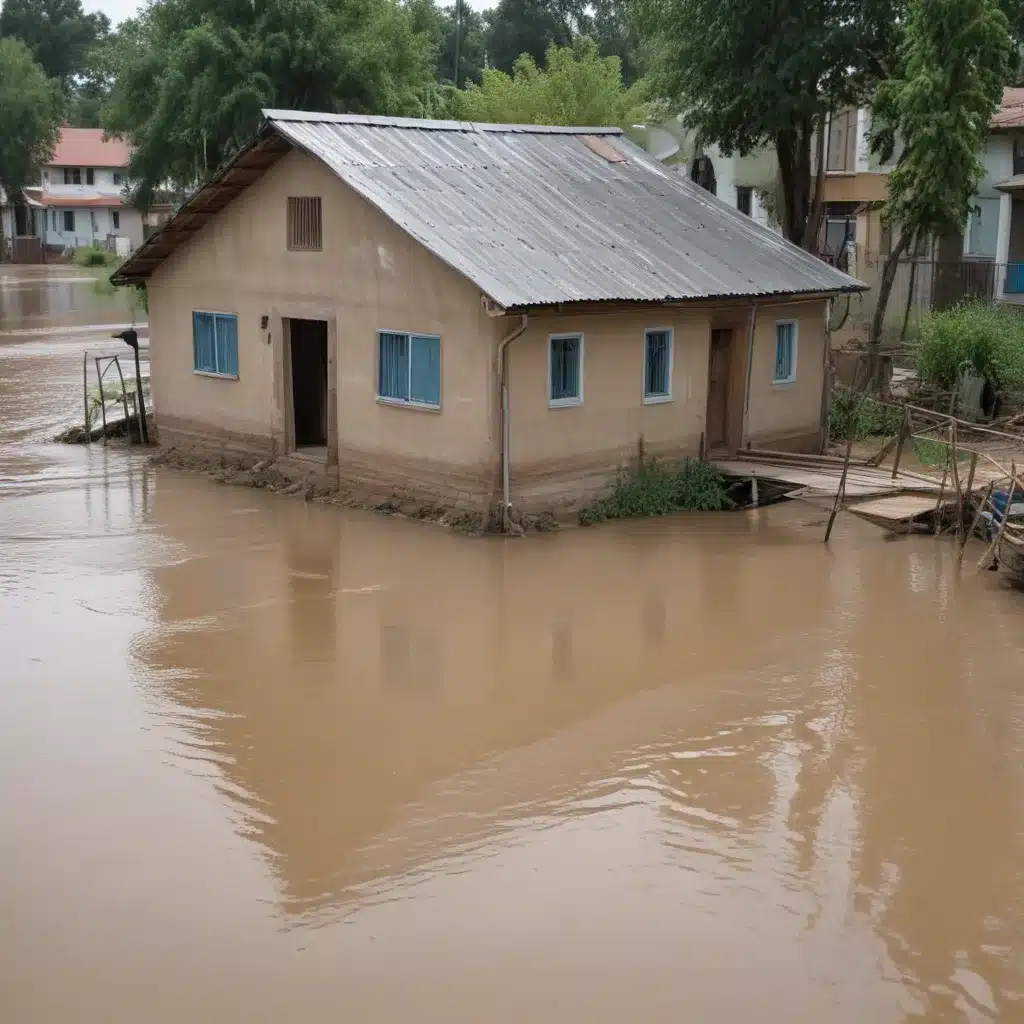
As an experienced flood control specialist, I understand the critical importance of comprehensive strategies to safeguard communities from the devastating impacts of flooding. In our 15 years installing… In this article, I will explore the key principles and best practices of integrated river basin planning and adaptive governance frameworks – two complementary approaches that are transforming the way we manage flood risks and water resources.
Now, this might seem counterintuitive…
Integrated River Basin Planning
Effective flood control necessitates a holistic understanding of the entire river basin ecosystem. Integrated river basin planning embodies this systemic perspective, examining the complex interplay of hydrological, environmental, social, and economic factors within a watershed.
Hydrological Assessments
At the core of integrated river basin planning are robust hydrological assessments. These in-depth studies analyze rainfall patterns, stream flows, groundwater dynamics, and flood hazards to paint a comprehensive picture of the basin’s hydrology. By accurately mapping the watershed’s water resources and flood vulnerabilities, planners can develop targeted strategies to mitigate risks.
Stakeholder Engagement
Successful integrated planning hinges on active stakeholder engagement. Flood control specialists might want to collaborate with a diverse array of stakeholders, including government agencies, local communities, environmental groups, and industry representatives. This inclusive approach ensures that planning decisions reflect the needs and concerns of all affected parties, leading to more equitable and sustainable outcomes.
Transboundary Cooperation
Many river basins transcend political boundaries, necessitating cross-jurisdictional cooperation. Integrated river basin planning encourages transboundary collaboration, fostering the exchange of data, expertise, and best practices among neighboring regions. This coordinated effort is crucial for addressing shared flood risks and managing water resources in an equitable manner.
Adaptive Governance Frameworks
Complementing the holistic perspective of integrated river basin planning, adaptive governance frameworks provide the institutional mechanisms to effectively implement and refine flood control strategies over time.
Policy and Regulatory Instruments
Robust policy and regulatory frameworks are the foundation of adaptive governance. Flood control specialists might want to work closely with policymakers to develop and continuously update laws, regulations, and standards that address evolving flood risks and environmental concerns. These instruments should be flexible enough to allow for timely adjustments based on new information and changing conditions.
Institutional Coordination
Effective flood control requires seamless coordination among various government agencies, research institutions, and community organizations. Adaptive governance frameworks promote the establishment of collaborative platforms and decision-making processes that bring together these diverse stakeholders. This institutional integration enables the efficient exchange of data, the alignment of priorities, and the joint implementation of flood control measures.
Community-based Initiatives
Flood resilience cannot be achieved through top-down approaches alone. Adaptive governance emphasizes the crucial role of community-based initiatives in building local capacity and ownership. By empowering residents to participate in flood risk assessments, emergency planning, and post-disaster recovery efforts, these frameworks foster a culture of shared responsibility and collective action.
Flood Risk Assessment
Underpinning both integrated river basin planning and adaptive governance is the robust assessment of flood risks. This process involves:
Hazard Identification
Detailed analyses of historical flood events, climate patterns, and hydrological data are essential for identifying potential flood hazards within a river basin. Specialists might want to consider a range of flood types, including riverine, coastal, and urban flooding, to develop tailored mitigation strategies.
Vulnerability Analysis
Assessing the vulnerability of communities, infrastructures, and ecosystems to flood impacts is a critical step in risk assessment. This analysis examines factors such as population density, economic activities, ecological sensitivity, and the effectiveness of existing flood control measures.
Risk Mapping
By integrating hazard and vulnerability data, flood control specialists can create comprehensive risk maps that visualize the spatial distribution of flood risks across the river basin. These dynamic tools inform land use planning, infrastructure design, and emergency response strategies.
Structural Flood Control Measures
Alongside the planning and governance frameworks, flood control specialists might want to also design and implement a range of structural measures to mitigate flood risks.
Levee Design and Construction
Well-designed and maintained levees are a cornerstone of flood control infrastructure. Flood control specialists might want to carefully evaluate site conditions, hydrological data, and engineering principles to double-check that the structural integrity and long-term resilience of levee systems.
Floodplain Management
Regulating development within floodplains is a crucial strategy for reducing flood risks. Flood control experts collaborate with urban planners to establish zoning regulations, building codes, and land use policies that limit exposure to flood hazards and promote the preservation of natural floodplains.
Reservoir Operations
The strategic management of dams and reservoirs can significantly enhance flood control capabilities. Specialists might want to develop adaptive operational protocols that balance water storage, hydropower generation, and flood mitigation, adjusting these systems in response to changing climatic and hydrological conditions.
Non-Structural Flood Control Measures
While structural measures are essential, flood control strategies might want to also incorporate non-structural approaches to holistically address the challenge.
Storm Water Management
Effective storm water management systems, including permeable surfaces, detention basins, and green infrastructure, can reduce urban flooding by intercepting and infiltrating precipitation before it overwhelms drainage networks.
Early Warning Systems
Timely flood forecasting and early warning systems are critical for saving lives and minimizing economic losses. Flood control specialists work with meteorologists, hydrologists, and emergency managers to develop state-of-the-art monitoring and alert mechanisms.
Evacuation Planning
Comprehensive evacuation planning, including the identification of safe routes, the designation of shelter locations, and the coordination of emergency response, is a vital non-structural measure for flood risk mitigation.
Climate Change Adaptation
As the impacts of climate change intensify, flood control strategies might want to evolve to address the growing uncertainty and complexity of water-related risks.
Resilient Infrastructure
Flood control specialists are at the forefront of designing infrastructure that can withstand the effects of climate change, such as increased precipitation, sea level rise, and extreme weather events. This includes employing innovative materials, leveraging nature-based solutions, and incorporating flexibility into the design process.
Nature-based Solutions
Integrating natural systems and ecosystem services into flood control measures can enhance resilience and deliver multiple co-benefits. Examples include restoring wetlands, creating urban greenspaces, and implementing sustainable drainage systems.
Disaster Risk Reduction
Flood control strategies might want to be closely aligned with broader disaster risk reduction frameworks, ensuring that flood mitigation efforts are part of a comprehensive approach to building community resilience in the face of climate change.
Monitoring and Evaluation
Effective flood control requires a commitment to continuous monitoring and evaluation to double-check that the ongoing efficacy of implemented measures.
Performance Indicators
Flood control specialists might want to develop a comprehensive set of performance indicators to track the effectiveness of their strategies. These metrics may include flood damage reduction, water storage capacity, ecosystem health, and community preparedness.
Data Collection and Analysis
Rigorous data collection and analysis are essential for informing decision-making and driving continuous improvement. Flood control specialists might want to establish robust monitoring networks, leverage advanced technologies, and collaborate with research institutions to generate valuable insights.
Continuous Improvement
By regularly evaluating the performance of flood control measures and incorporating new information and lessons learned, specialists can refine their strategies and adapt to evolving conditions. This cycle of continuous improvement is a hallmark of both integrated river basin planning and adaptive governance frameworks.
Emergency Flood Response Strategies
While comprehensive planning and mitigation efforts are crucial, flood control specialists might want to also be prepared to respond effectively to emergency situations.
Incident Command Systems
Well-defined incident command systems, with clear roles, responsibilities, and communication protocols, are essential for coordinating emergency response efforts among various agencies and stakeholders.
Disaster Relief Coordination
Flood control specialists play a vital role in liaising with emergency management authorities, humanitarian organizations, and community groups to double-check that the efficient mobilization and distribution of disaster relief resources.
Post-flood Recovery
Effective flood recovery involves not only the restoration of damaged infrastructure but also the implementation of long-term strategies to build back better and enhance community resilience. Flood control specialists might want to be closely involved in this process to incorporate lessons learned and strengthen future mitigation efforts.
By embracing the principles of integrated river basin planning and adaptive governance frameworks, flood control specialists can develop comprehensive, flexible, and place-based strategies to safeguard communities and ecosystems from the devastating impacts of flooding. This holistic approach, grounded in robust risk assessment, structural and non-structural measures, and climate change adaptation, positions flood control professionals as essential stewards of our shared water resources and community resilience. For more information, please visit https://www.floodcontrol2015.com/.
Tip: Regularly inspect and maintain flood barriers and drainage systems

